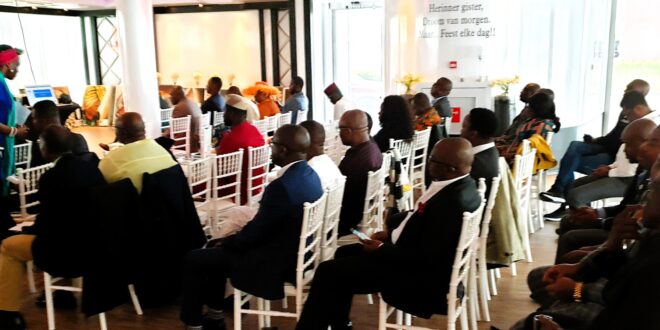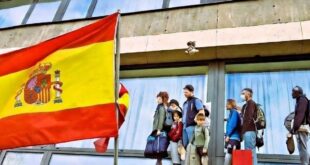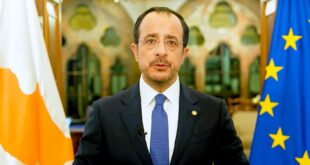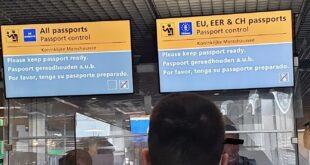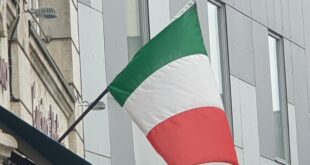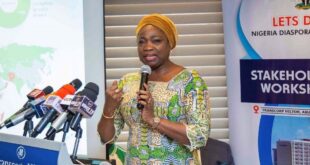In a landmark step towards unified advocacy, leaders of Nigerian communities across Europe convened a virtual summit on Saturday, 20 September, to tackle pressing issues affecting the diaspora and develop concrete proposals for the Nigerian government. Organized by the International Advocacy for Human Rights and Anti-Corruption (IAHRAC), the meeting marked an important move towards building a stronger collective voice for Nigerians in Europe.
Moderated by Dr Okoro Akinyemi, Head of Affairs at IAHRAC, the gathering brought together community representatives who emphasised that their goal was constructive dialogue and tangible solutions. Akinyemi set the tone, stating that the diaspora has a crucial role to play in supporting policy development and fostering positive change in Nigeria.
Tackling Bureaucratic Hurdles: NIN and Passports
A major point of deliberation was the cumbersome process of obtaining the National Identification Number (NIN). Participants criticised the high costs and bureaucratic bottlenecks, contrasting it with efficient European models like the UK’s National Insurance Number, which is issued automatically and free of charge. They questioned the reliance on unvetted private agencies and proposed that Nigerian embassies in Europe be empowered to handle NIN registration alongside passport renewals to streamline the process. A dedicated committee was formed to draft formal recommendations on this issue.
The government’s decision to centralize passport production in Nigeria was also scrutinised. While acknowledging the potential to curb corruption by cutting out middlemen, leaders expressed deep concerns over the lack of transparency. With applications sent directly to Abuja, embassies are left unable to track progress or assist applicants facing delays, leading to frustration. The meeting resolved to propose a dedicated government contact line for follow-ups. A significant privacy concern was also raised regarding the display of the full NIN on passports, with a recommendation to either remove it or show only partial digits.
Encouraging Diaspora Investments
Moving beyond administrative issues, the discussion focused on the fundamental needs of diaspora Nigerians looking to invest back home. Participants argued that what is needed most is not symbolic gestures but a stable, transparent environment underpinned by the rule of law. Analysts have long noted that Nigeria’s diaspora is underleveraged despite its vast potential.
“Government at all levels should prioritise predictable policies, particularly in sensitive sectors like real estate, where arbitrary actions by officials can shatter confidence,” was a key consensus. It was recommended that state governments should be more active in providing for opportunities for diaspora engagement, with clear procedures and genuine consultation to ensure investments are sustainable and benefit local economies.
A New Chapter of Unity
The leaders acknowledged that challenges within the Diaspora, such as ethnic division and leadership rivalries, have historically weakened their influence. There was a strong call for unity and solidarity to strengthen advocacy. “Our unity is our strength. Only by speaking with one voice can we present meaningful recommendations for Nigeria’s development,” a participant noted.
To sustain the momentum, the assembly agreed to hold quarterly meetings, with the next session scheduled for 16 November 2025. The newly formed NIN committee is expected to present its initial recommendations at the meeting.
In his closing remarks, Dr Akinyemi thanked attendees for their contributions, acknowledging that the extended duration of the pioneering meeting was a testament to its importance. Participants widely agreed that the summit was long overdue and represents a significant step to move past finger-pointing and build a concerted strategy to tackle issues facing Nigerians abroad.
Femi Awoniyi
READ ALSO Nigerian community leaders in Europe to meet over key issues affecting diaspora
 THE AFRICAN COURIER. Reporting Africa and its Diaspora! The African Courier is an international magazine published in Germany to report on Africa and the Diaspora African experience. The first issue of the bimonthly magazine appeared on the newsstands on 15 February 1998. The African Courier is a communication forum for European-African political, economic and cultural exchanges, and a voice for Africa in Europe.
THE AFRICAN COURIER. Reporting Africa and its Diaspora! The African Courier is an international magazine published in Germany to report on Africa and the Diaspora African experience. The first issue of the bimonthly magazine appeared on the newsstands on 15 February 1998. The African Courier is a communication forum for European-African political, economic and cultural exchanges, and a voice for Africa in Europe.

